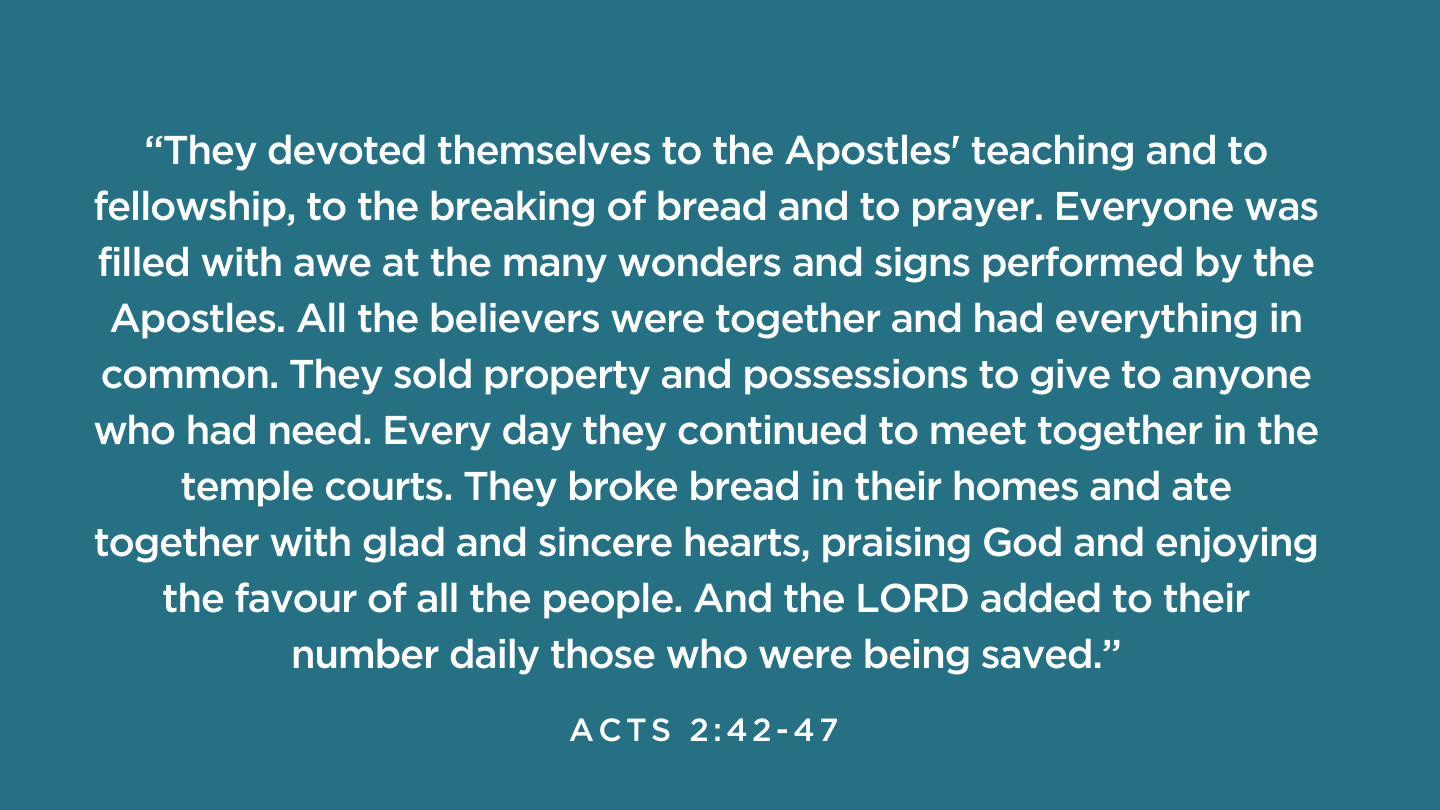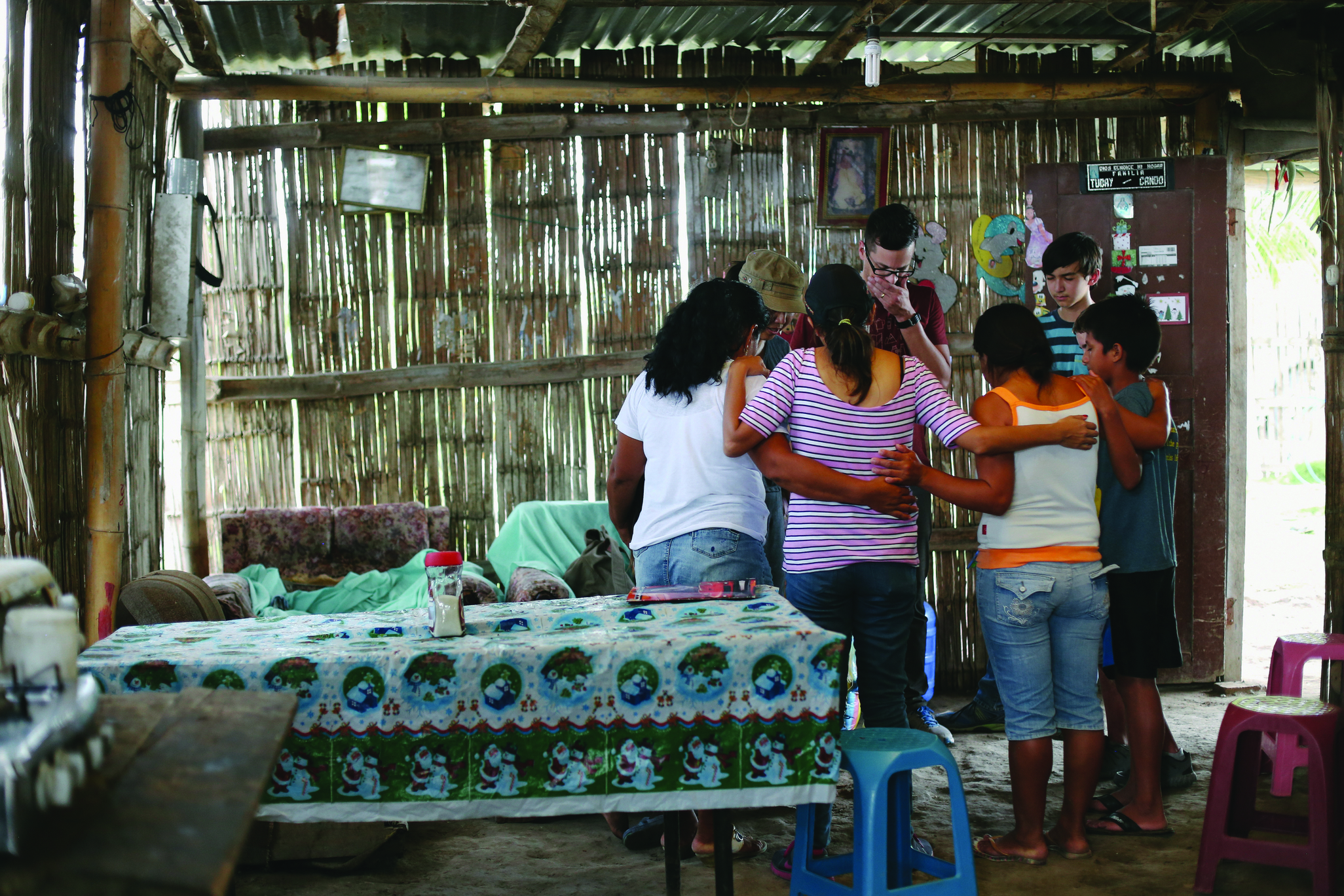Eyes to SeeSample



“There’s no I in the team,” they tell us. But they also say, “if you want to do something right, do it yourself.” Anyone who has ever done a group project at school, been on a sports team, or a committee understands this tension between individual and community. And there is no one correct answer: We live life both as an individual and as a member of a larger group.
That said, different cultures lean different ways regarding this tension. Canadian culture is inclined toward an individualistic mindset. Each person’s goals and achievements are important, and we value competition. Collective cultures, on the other hand, place group identity in a place of greater importance. Each type of culture has benefits and drawbacks. Often, our individualistic culture disconnects us from one another and leaves us with what researchers describe as an epidemic of loneliness. According to the 2021 Statistics Canada survey, more than 1 in 10 Canadians aged 15 and older said they always or often felt lonely.
While individualistic cultures include places such as Canada, the UK, Australia, and the United States, most of the world’s cultures are collective, including much of Africa, Asia, Central America, and South America. Collective cultures emphasize the group over the individual, so people value selflessness and
sacrifice for the common good. Loyalty and helping one another are key values, and collective cultures recognize the interconnectedness of all people.
On the other hand, collectivist culture can result in conformity, groupthink, and what we might see as over-involvement in people’s private lives. The contrast between the two mindsets was clearly seen by a missionary flying home from Haiti. The plane was half-empty, so the pilot invited anyone who wanted to change seats to do so. The missionary observed that every single North American got up and moved away from the people they were sitting with to have more personal space. In contrast, all the Haitians got up and moved closer to one another, whether they knew each other or not.
Pastor George of Tanzania is an amazing example of living in the community. Although he only has two children, he often has up to 11 people living with him. Children whose parents have died or children who have been rejected for becoming Christians have come to live with him. When someone in the community has a need, they know his door will be open. Caring for all these needs often overwhelms him. But when he begins feeling this way, he thinks to himself, “What would Jesus do in this situation? Would He deny them? No, He would welcome them to Him.”
What would happen if, like Pastor George, we extended our view of family and community? Maybe you’ve known someone who has done this for you or others — people who defined family in a way that was more generous than society normally allows. See, God has called us to carry one another’s burdens. To open our hearts to our global family and the community in which God has placed us. Because as we all contribute, we begin to mend the broken relationships that characterize our world.

Reflect:
- What do you think you have lost, personally, living in an individualistic society?
- Why do you think living in a more community-minded way is so challenging for us in North America?
Pray:
Lord, some days my burdens feel more than heavy enough. I feel weary and even afraid at the thought of letting the concerns of others in. Would You help me to be shaped more by You than by my culture? Help me to open my heart to the community You have placed me in. Amen.
Scripture
About this Plan

Jesus had compassion, especially for those facing poverty, injustice, and inequality. What is our response? Do you see the world the way God does? If you want to go deeper and understand the spiritual root of poverty, join us for this 42-day video-assisted bible study from Compassion Canada. Ideal for group study or a challenging personal journey. Abridged and Updated.
More
We would like to thank Compassion Canada for providing this plan. For more information, please visit: http://cmpsn.ca/YV
Related Plans

One New Humanity: Mission in Ephesians

Meet God Outside: 3 Days in Nature

Evangelistic Prayer Team Study - How to Be an Authentic Christian at Work

I Don’t Like My Kid Right Now: Honest Truths for Tired Christian Parents

The Artist's Identity: Rooted and Secure

The Gospel of Matthew

Numbers | Reading Plan + Study Questions

(Re)made in His Image

Finding Freedom: How God Leads From Rescue to Rest
